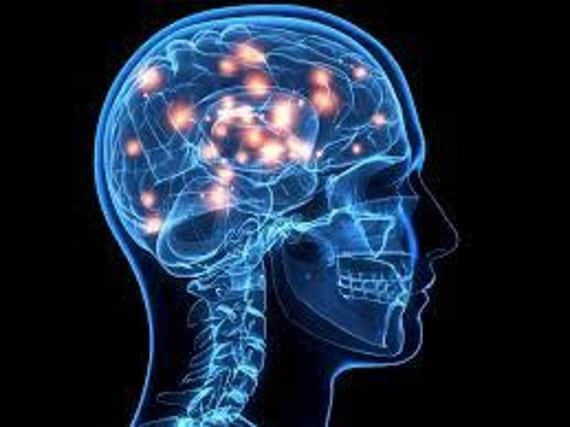'˜I don't know where I would bewithout the Child Brain Injury Trust'


As the injury occurs after birth it is called an ‘acquired brain injury or ABI.’
Most children will make a good physical recovery; will be discharged from hospital, eventually return to school and life gets back to normal.
Advertisement
Hide AdAdvertisement
Hide AdHowever, over time there may be some changes in personality or behaviour.
The full effects of the brain injury may not be known for some time, perhaps even years after the event, because the young person’s brain is still developing.
A young person with an ABI may often tire more easily, leading to problems with concentration and taking on instructions.
There can also be issues with memory, which can be frustrating.
Advertisement
Hide AdAdvertisement
Hide AdLocal woman, Lisa Murray, noticed changes in her son Keelan from a very young age.
At four and a half months, Keelan came close to death after he contracted Bacterial Meningitis.
“He was in hospital for two weeks on IV antibiotics and he almost died.
“When he was eventually discharged from hospital, we were told there was still a very small amount of fluid on his brain, but that it would go away on it’s own.”
Advertisement
Hide AdAdvertisement
Hide AdKeelan reached all his milestones and initially the only side effect from the illness Lisa noticed was that her son was very clingy.
However, from the age of three years, Keelan began to behave in a way that ‘was not normal.’
“He was really impulsive and you couldn’t keep your eyes off him.
“Keelan just wouldn’t listen to anything, he would climb out windows to get out of the house, kick and hit me and was easily distracted.
Advertisement
Hide AdAdvertisement
Hide Ad“It was all the symptoms of ADHD, but I was told Keelan was too young to diagnose and he would settle when he got to primary school.”
Keelan’s behaviour continued, ADHD was ruled out and Lisa, who has a background working in childcare, was sent to parenting courses.
“It felt like people were judging me because I couldn’t control my child, but there was no controlling him.
“His brain doesn’t process information in the same way everyone else’s does. Keelan has no sense of danger, no sense of consequences and is so impulsive.”
Advertisement
Hide AdAdvertisement
Hide AdFor years, Lisa had been told that there was no connection between the meningitis and Keelan’s behaviour.
Keelan is now 11 and is finally awaiting neuro-psyche tests to examine if he does have a brain injury.
“If he had a tumour or had been in a car accident, it would be easier to diagnose. For years I have been told that Keelan has behavioural problems but nothing we have tried has worked to change this behaviour.
“Keelan can’t control what he does. Aged 11, he should know the difference from right and wrong but he doesn’t.
Advertisement
Hide AdAdvertisement
Hide Ad“Keelan is getting into more and more trouble and every time he goes out on the street he is hitting other children, breaking windows and doing things that put him in danger.”
He is also violent at home and Lisa worries about ‘what he is going to be like’ in the years to come.
For the last three years, Lisa has been receiving support from the Child Brain Injury Trust, which supports 250 families across Northern Ireland.
“They have given me so much information about brain injuries. I now know that there are triggers which can set Keelan off and I can control them at home, but at school and in the street, it is out of my control.”
Advertisement
Hide AdAdvertisement
Hide Ad“If is wasn’t for the Child Brain Injury Trust I don’t know where I would have been. I have been blaming myself for years because I really didn’t know what else to do with Keelan.”
The Child Brain Injury Trust supplies information, support and training to anyone affected by childhood acquired brain injury, including the child, their families and porcfessionals who support them.
There are also social events throughout the year that families can take part in. Families can self-refer or can be referred by a professional. For more information contact the Child Brain Injury Trust on 028 90 817145.